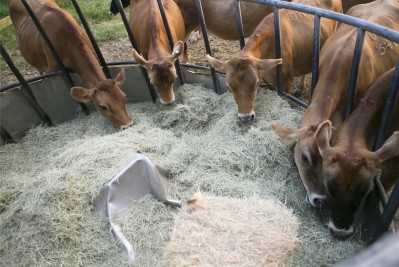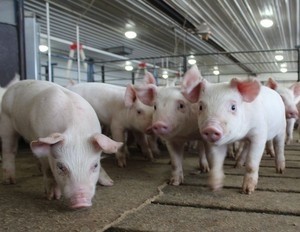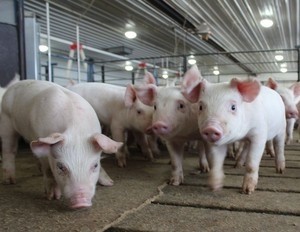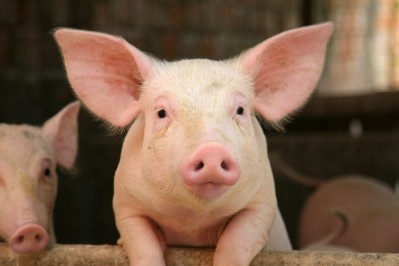Essential oil and enzyme blend may boost piglet health
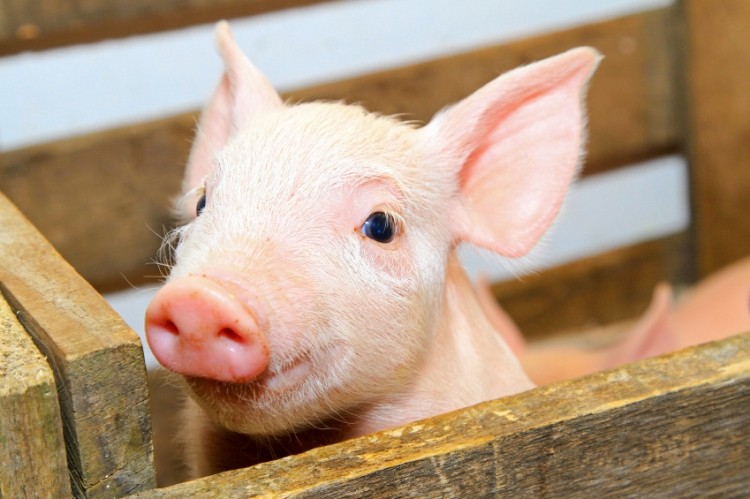
The group reported in Animal Feed Science and Technology on trials undertaken using blends of the oils thymol and cinnamaldehyde (EO) and enzymes xylanase and β-glucanase (XB) in piglets exposed to a pathogen challenge.
“The results suggest that the combination of EO and XB supplementation may have beneficial effects on the modulation of fecal consistency, microbial counts and ileum microscopic anatomy in weaned piglets following E. coli infection,” the scientists said.
Why the combination
Weaning has been associated with gastrointestinal issues in piglets that may lead to post-weaning diarrhea, said scientists. Diarrhea and infections are causes of morbidity and mortality in piglets and may account for up to 50% of the economic loss in production.
Previous work with essential oils or enzymes has demonstrated beneficial properties for health and performance, they said. And, cinnamon-derived cinnamaldehyde has demonstrated antimicrobial traits, they added.
“Improvements in nutrient digestibility, intestinal microscopic anatomy and growth performance have also been observed when the diets of weaned piglets or broiler chicks have been supplemented with xylanase or β-glucanase,” said the team.
Additionally, their previous work with the supplements indicated the potential to moderate gut health, they said. However, nothing was known about how the compound would work with a pathogen challenge.
Experiment details
In the experiment, 192 weaned pigs were given one of eight treatments for a 35-day period, said researchers. No antibiotic growth promoters were used in the diet.
The feeds included a basal control diet, and that diet with either .05g/kg EO or 0.1g/kg XB, and the control diet with both supplements (EOXB), they said. Piglets were fed the E.coli challenge on day 8.
Piglets were weighed at the start of the experiment and every week through the end of the trial, they said. Average daily gain (ADG), average daily feed intake (ADFI) and the gain to feed ratio (G:F) were determined.
Fecal scores were recorded weekly according to a five-point scoring system where 1 was hard and 5 was liquid, they said. Cecum content was collected from a sample of the piglets at the end of the study.
Results
There was no effect found from diet on growth performance at the start of the experiment, but lower body weights were seen in piglets receiving the pathogen challenge, said researchers. The E. coli treatment impeded ADG, ADFI and the G:F values were reduced when compared to non-challenged animals, said researchers.
However, the EOXB supplement did boost G:F compared to the XB group initially, they said.
Fecal scores were increased for several days after the challenge, researchers said. However, pigs getting the EOXB diet saw a lesser negative fecal effect from the challenge compared to the challenged control group and other treatments in the week after the challenge.
“In this experiment, the combination of EO and XB modulated the severity of the diarrhea by decreasing the fecal scores during the week post-challenge,” they said.
The challenge also increased fecal populations of Clostridia, E. coli and coliforms, with amounts of E. coli and coliforms remaining elevated, they said.
Pigs getting the EO and EOXB diets had lower amounts of E. coli and coliforms than the control group, researchers said. And, the supplemental EOXB decreased the E.coli and coliform count in the cecum digesta.
“The results showed that dietary XB or EO tended to reduce the coliforms population in the cecum content compared to the CTR piglets,” they said. “These observations suggest that the administration of essential oils and enzymes alone and in combination inhibited E. coli and coliforms. The effect of EOXB supplementation on the fecal consistency of the challenged piglets may be related to improvements to the gastrointestinal microbial ecosystem.”
The EOXB diet had decreased crypt depth and an improved villus-to-crypt ratio when compared to the control group, they added.
The experiment also showed improved feed efficiency from XB and EOXB diets during the last week of the trial, researchers said.
“The results suggest that XB or EOXB may allow piglets to better respond to stress in the post-weaning period when performance is most likely to be impaired,” they said.
Source: Animal Feed Science and Technology
Title: Influence of a blend of essential oils and an enzyme combination on growth performance, microbial counts, ileum microscopic anatomy and the expression of inflammatory mediators in weaned piglets following an Escherichia coli infection
DIO: 10.1016/j.anifeedsci.2015.08.010
Authors: X.R. Jiang, A. Agazzi, A. Awati, F. Vitari, H. Bento, A. Ferrari, G.L. Alborali, M. Crestani, C. Domeneghini, V. Bontempo
